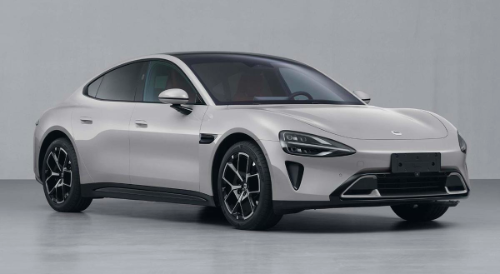Related searches

One of the most significant advantages of electric SUVs lies in their contribution to reducing carbon emissions and combating climate change. By harnessing electric power instead of relying on fossil fuels, these vehicles offer a cleaner alternative to traditional SUVs, significantly reducing greenhouse gas emissions and mitigating the environmental impact of transportation. As governments worldwide implement stricter emissions regulations, electric SUVs are poised to play a crucial role in achieving sustainability targets and transitioning to a low-carbon future.
Moreover, electric SUVs are not just environmentally friendly – they also deliver impressive performance and driving experiences. Electric motors provide instantaneous torque, delivering swift acceleration and responsive handling that rivals, if not surpasses, their gasoline-powered counterparts. The inherent design advantages of electric powertrains, such as a lower center of gravity and precise power delivery, result in superior driving dynamics and enhanced agility on the road, making electric SUVs a joy to drive.
Another compelling aspect of electric SUVs is their potential to revolutionize energy consumption and reduce operational costs. With fewer moving parts and simplified maintenance requirements compared to internal combustion engines, electric SUVs offer significant savings in long-term ownership costs. Additionally, advancements in battery technology are extending the driving range of electric SUVs, alleviating concerns about range anxiety and enabling longer trips without the need for frequent recharging.
However, challenges remain on the path to widespread adoption of electric SUVs. Infrastructure limitations, particularly the availability of charging stations, pose a significant hurdle for potential buyers. While efforts are underway to expand charging infrastructure and improve accessibility, further investment and collaboration between governments and private stakeholders are needed to accelerate progress and address range anxiety concerns effectively.
Furthermore, the upfront cost of electric SUVs remains a barrier for some consumers, despite long-term savings on operational expenses. While declining battery costs and government incentives are making electric vehicles more affordable, continued efforts to reduce manufacturing costs and increase economies of scale are essential for making electric SUVs accessible to a broader range of consumers.
In conclusion, electric SUVs represent a paradigm shift in the automotive industry, offering a compelling blend of sustainability, performance, and cost-effectiveness. While challenges such as charging infrastructure and upfront costs persist, ongoing advancements in technology and concerted efforts from industry stakeholders are driving the electric SUV revolution forward, paving the way for a more sustainable and electrified future of transportation.








